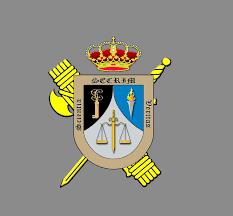

News
The ‘Science and Innovation Missions’ program allocates 121 million euro to 37 large cooperation projects
The Centre for Industrial Technological Development (CDTI) , an entity dependent on the Ministry of Science and Innovation, has published the final resolution of the call for ‘Science and Innovation Missions’ 2021, for which nearly 121 million euro are allocated in aid to 37 major cooperative research projects led by companies around nine major challenges.
Minister Diana Morant has highlighted that, with this call, it is possible to join public and private efforts to face strategic social needs. “One of the lessons that the pandemic has left us is the need to promote public-private collaboration in science and innovation to respond to the most urgent social challenges,” Morant insisted.
The minister presented the results of this call during a visit to the facilities of the Hipra company, in Amer (Girona). This company is leading a project to investigate a new vaccine against respiratory syncytial virus (RSV), which causes bronchiolitis and pneumonia, which affects all ages and, especially, young children around the world.
This project, in which four companies participate, is one of the 37 projects approved in this call and will receive 3.9 million euro from the CDTI, of which two million are destined to Hipra, to promote research on this new vaccine.
Specifically, this project is part of the mission that aims to promote the advancement and technological training of the Spanish biopharmaceutical industry to promote R&D actions in the field of advanced therapies, vaccines and targeted therapies. This mission, in turn, is part of the Strategic Project for Recovery and Economic Transformation (PERTE) for Vanguard Health , which plans to mobilize 1,469 million euros to promote the development of personalised medicine and advanced therapies in Spain.
Call for ‘Science and Innovation Missions’
The ‘Science and Innovation Missions’ program is part of the Recovery, Transformation and Resilience Plan and seeks to support pre-competitive research projects that respond to three specific objectives: to promote relevant research that proposes solutions to cross-cutting and strategic challenges of the Spanish economy; improve the knowledge and technology base on which Spanish companies rely to compete, and stimulate public-private cooperation between companies and R & D & I institutions.
The projects approved in this call -which reach a total budget of about 180 million euro- have the participation of 201 different companies (126 of them SMEs) and 108 knowledge generating organisations. 23% of the total approved budget (41.47 million euro) is subcontracted to these organisations: 46% with technology centres, 29% with public research organisations and 25% with universities.
Of the 37 approved projects, 24 correspond to ‘Large Business Missions’, with a budget of 152.35 million euro, of which 101.67 will correspond to the grant committed by the program. The remaining 13 projects are ‘Misiones PYMES’, with a total budget of 27.52 million euro and a grant of 19.57 million euro. The participation of SMEs is not limited to consortiums of Misiones PYMES, but they have obtained 55% of the total grants awarded, which confirms the driving capacity of these projects.
Science and Innovation Missions
The Science and Innovation Missions have been designed in response to five major challenges in the field of climate change and environmental and socio-economic sustainability:
- fight against climate change
- Boosting the energy transition
- Sustainability and reinforcement of actions in support of the circular economy
- Digitisation of industrial and economic activities
- Development of additional strategic capacities, of necessity evidenced during the health crisis of COVID-19, and economic recovery.
Through this program, designed and managed by the CDTI, the Ministry of Science and Innovation promotes and financially supports large strategic R&D projects whose objective is to contribute to the development of the following present and future missions that pose a social challenge and economic for Spain:
1.To promote the Spanish agriculture of the XXI century: sustainable, intelligent, efficient in the consumption of water resources and agricultural inputs and adapted to Climate Change.
2. Promote safe, efficient and clean energy for the 21st century.
3. Boost Spanish industry in the industrial revolution of the XXI century.
4.Promotion of the circular economy through new technologies for recycling and recovery of polymeric waste in Spain.
5.Impulse to the security of the information, the privacy and the cybersecurity in the economy and the Spanish society of the XXI century.
6. Promote sustainable and intelligent intermodal transport.
7. Boost the development of tourism by exploiting the possibilities of technology.
8.To promote the advancement and technological training of the Spanish biopharmaceutical industry to promote R&D actions in the field of advanced therapies, vaccines and targeted therapies.
9.Promotion of high-performance computing.
With the exception of the Health Mission, included in Investment 6 of Component 17 of the Recovery Plan and which has its own budget reserve within the call, the rest of the missions are not prioritised, so the best ones have been selected projects regardless of the mission to which they are oriented. However, projects have been approved for all the missions proposed in the call.
Hipra vaccine against COVID-19
During his visit to the Hipra facilities in Amer (Girona), Morant has also valued the work of this laboratory, a leader in veterinary vaccines, which has been converted in the face of the global emergency of COVID-19 to work on the development of vaccines for humans.
“Hipra is an example of an innovative company that has adapted to the needs of the pandemic to try to provide responses to citizens,” stressed the Minister of Science and Innovation. The Government of Spain has supported this transformation with financing of almost three million euro and with scientific advice. In addition, the CDTI approved in October an aid of almost 15 million euros to Hipra for the clinical trials of phase II / III of its vaccine against the SARS-CoV-2 coronavirus , Morant recalled.
As specified by the minister, on December 10 the volunteers of phase IIb were finished vaccinating and, currently, the data from this clinical trial are being analysed. If it receives approval from the Spanish Agency for Medicines and Health Products, Hipra could begin the III phase of clinical trials in the second half of January. Also, if all goes well, the pharmaceutical company expects the vaccine to be ready in the second quarter of this year.
“Hipra has told us that the vaccine is showing good results against the omicron variant in the studies carried out so far. Therefore, if it was already effective against previous variants such as delta, we now know that it has good resistance against omicron” , has highlighted Motant, who has insisted that the technology used in this vaccine has the ability to adapt to the new variants that arise. “This is the year of hope and we hope to have a Spanish vaccine against COVID-19, although we remain prudent,” said the minister.
-

 Driving in Spain2 weeks ago
Driving in Spain2 weeks agoHow Long Does it take to Receive a Traffic Fine Through the Post?
-

 News2 weeks ago
News2 weeks agoYour Task for This Week is to Seek Out a Monument – The Week Ahead
-

 Health2 weeks ago
Health2 weeks agoQuirónsalud Elche and Quirónsalud Gran Alacant strengthen their services with the incorporation of a new team specialised in advanced ophthalmology
-

 Court News2 weeks ago
Court News2 weeks agoMan in court accused of trying to kill ex-partner with an axe























